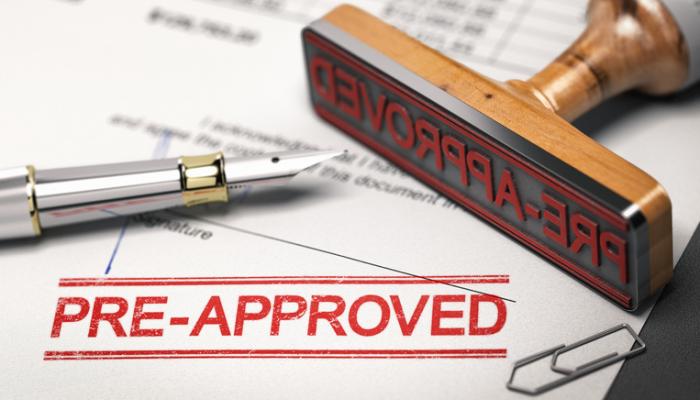Getting a VA loan while serving in the military is definitely possible. Here we look at some of the major differences and what to expect.
It's not uncommon for service members to think they have to wait until they've separated from the military to pursue a VA home loan. But that's absolutely not the case – active duty service members can and do use this benefit every single month.
Let’s explore what it takes for an active duty military member to use their VA loan benefit.
Can active military get a VA loan?
Yes, active duty service members are eligible for a VA loan. Current service members can utilize this government-backed mortgage program just like someone who ETS'd a decade ago!
VA Loan Eligibility for Active Duty Military
To be eligible for a VA loan, active duty members typically must meet at least one of the following:
- Served at least 90 consecutive days on active duty during wartime
- Served at least 181 days during peacetime
However, meeting the eligibility requirements is just the first step. There are still credit, income and other financial guidelines to clear. Current service members can also run into challenges regarding occupancy and the VA's focus on primary residences.
But the bottom line remains the same: You can use the VA loan program to buy a home while you're still serving. Let’s take a closer look.
Active Duty Income Requirements
Active military members still need to meet VA and lender guidelines for credit score, debt-to-income ratio, residual income and more. Some good news: As long as you're not set to ETS within 12 months of your loan closing, there isn't usually much room for concern about your employment.
Lenders will obtain a copy of your Leave and Earnings Statement (LES) to get a better handle on your income. You may also be able to count some military allowances and special pay, such as flight pay, hazard pay and combat pay. On top of that, eligible service members can also count their Basic Allowance for Housing toward qualifying for a VA mortgage.
Active Duty Occupancy Requirements
The VA requires all VA loan borrowers to fulfill its occupancy requirement. Buyers must agree to occupy their homes within 60 days of closing and make it a primary residence for at least one year.
This may seem a little difficult for active duty service members to meet, but the VA has already accounted for PCSing and deployments. A VA loan can still be approved if the service member cannot meet the occupancy requirements as long as their spouse can fulfill the requirement on their behalf.
As a general example, an active duty borrower stationed in California could seek a VA loan to purchase a home in Florida, provided in part that his or her spouse can fulfill the occupancy requirement.
Nearing the End of Active Duty Service
There are additional requirements for active duty service members nearing the end of their service when using a VA loan.
Lenders want to primarily make sure you can afford monthly payments before approving the loan. With your service nearing, that most likely means your stable income is ending as well.
Lenders must identify service members within 12 months of release from active duty or end of a contract term. It is the lender’s responsibility to determine if loan applicants are within this window and whether or not they intend to reenlist.
Typically, a VA lender will ask for documentation that the service member has already reenlisted or extended his or her service beyond 12 months from the loan closing date:
- If not reenlisting, the service member must provide a valid civilian job offer, including starting date and pay.
- If reenlisting, the service member must provide a signed statement that they intend to enlist or extend their service beyond 12 months from the loan closing date. Borrowers who intend to reenlist must also provide a statement from their commanding officer declaring their eligibility to reenlist and that no reason exists to deny their reenlistment request.
Power of Attorney
Depending on their situation, current service members may also need to utilize Power of Attorney during the mortgage process. There are two basic types, general and specific. Figuring out what you need depends in part on what documents the service member is able to sign and when.
Some might start the homebuying journey before deployment, while others decide to move forward despite being hundreds or thousands of miles apart. A loan specialist will walk you through what type of Power of Attorney documents you need.
Remember, the VA loan program isn't a benefit open only to those no longer serving. Tens of thousands of service personnel utilize their hard-earned home loan benefits each year!
Related Posts
-
 Can Your Mortgage Be Denied After Preapproval?It is possible for you to get denied for a home loan after being preapproved. Find out why this may happen and what you can do to prevent it.
Can Your Mortgage Be Denied After Preapproval?It is possible for you to get denied for a home loan after being preapproved. Find out why this may happen and what you can do to prevent it. -
 VA Renovation Loans for Home ImprovementVA rehab and renovation loans are the VA's answer to an aging housing market in the United States. Here we dive into this unique loan type and the potential downsides accompanying them.
VA Renovation Loans for Home ImprovementVA rehab and renovation loans are the VA's answer to an aging housing market in the United States. Here we dive into this unique loan type and the potential downsides accompanying them.

